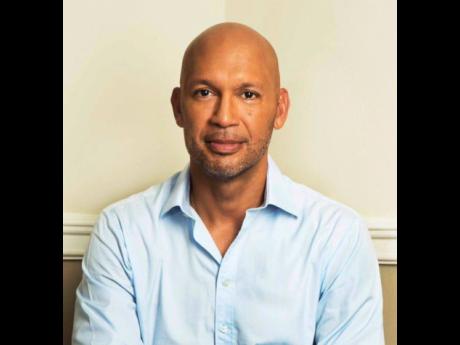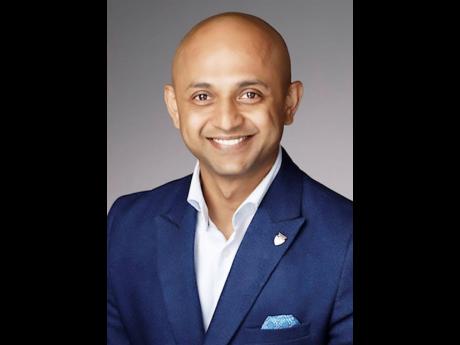BPO security alert
Worker shortage forces firms to relax vetting, background checks for staff
Although winning the battle in minimising fraud within the sector, there are concerns that in the absence of an information sharing system and proper background checks, the business process outsourcing (BPO) industry might never be purged of...
Although winning the battle in minimising fraud within the sector, there are concerns that in the absence of an information sharing system and proper background checks, the business process outsourcing (BPO) industry might never be purged of workers with malicious intents.
According to Garth White*, a BPO operator for more than a decade, with the sector now facing a worker shortage, employers have become laxed in vetting job seekers, which poses a threat to the integrity of the local outsourcing industry.
“Not enough people who are employable are applying to work in the BPO sector,” White explained to The Sunday Gleaner last week.
“It has become so difficult to find workers that if we need 100 people, we are lucky to find 50. And because of this, nobody does background checks any more, so if 50 persons apply, it is likely that the 50 will be hired because the need is so great, and proper vetting takes time.”
He added, “Experienced or highly skilled workers, especially at the management level, are like precious diamonds in the industry. So no one will be turned away, for sure.”
When the BPO industry exploded in Jamaica about two decades ago, mainly in the western section of the island, law enforcement authorities identified the sector as the “number one” feeder for the lottery scam or advance-fee fraud, which is estimated to rake in more than $300 million annually to the Jamaican underground economy.
Police investigations revealed that through personal connections, scammers were able to acquire the personal information of overseas-based clients, sometimes free of cost, but in most instances, they paid BPO workers exorbitant amounts for the lead sheets, depending on how many names were on a list.
Lead sheets contain credit card and other personal information of individuals, which scammers use to target unsuspecting victims.
After countless elderly Americans, especially, lost all their assets to criminals, several initiatives, in partnership with international law enforcement agencies, were implemented to cauterise the scamming.
The Law Reform (Fraudulent Transactions) (Special Provisions) Act, 2013, was enacted to combat lottery scamming, advance-fee fraud and other fraudulent transactions. And the Anti-Lottery Scam Task Force was also established as local and international counterparts work to put an end to the illegal trade.
STRICT UNCONVENTIONAL MEASURES
The BPO sector also instituted strict security measures to protect clients' data, hoping to provide reassurance that Jamaica was determined to counter the threat. Touted as a big boost to the country's employment rate, outsourcing operators were forced to work hard to retain the contracts of major overseas companies in a multibillion-dollar globally competitive market.
“We went so far as to install metal detectors to prevent workers from entering the workspace with any form of listening device,” businessman Patrick Casserly, a pioneer in the local outsourcing sector, said last year.
Workers were also subjected to being searched entering and leaving the buildings.
There was outcry that some of the security measures were violating the rights of the workers when the outsourcing community was forced on the defensive after the revelation by Montego Bay businessman Davon Crump that some companies were stapling the pockets of their employees to prevent confidential information from being compromised. The BPO operators pushed back, declaring that theft of client data had become so serious that strict unconventional measures were necessary.
Casserly said in one instance, a female employee was caught with unauthorised data and sentenced to three months imprisonment.
And just recently, a worker at one company, who allegedly used a client's credit card information to make several purchases, was openly embarrassed when he was taken away from his workplace by the police. However, according to reports, no charges were laid against him.
“The main problem we face in the sector is that when someone is caught stealing information, unless it becomes a criminal matter, no one knows. So that person can always apply for a job at another BPO firm and get hired because we do not share information among ourselves,” said White.
“In the incident with the employee, he was deliberately taken off the floor by the police as a warning to other employees, but he was never charged because of the negative publicity that it would generate. He can always apply to another firm and do the very same thing.”
But Anand Biradar, president of the Global Services Association of Jamaica, told The Sunday Gleaner that there a legal limits to what information companies are allowed to share.
“Companies cannot share information with each other because that is against the Privacy Act,” he said. “The only instance they are allowed to share information is for reference check.”
SOLUTIONS BEING WORKED ON
According to Biradar, who is also the delivery head of the Americas for Sagility LLC (formerly known as HGS Healthcare), because of the nature of his company as a specialist in US healthcare, they are obligated to do background checks on all their workers, but other companies may not demand such stringent vetting.
“Whether a company does a background check and how deep a background check [is done] will depend on the position they are hiring for and the contract,” he explained.
He, however, believes that the process at the island's Criminal Records Office can be more efficient, which will aid in background checks of employees.
“It needs to be digitised. There must be a faster way of getting things done,” he argued.
Biradar said the BPO sector is now working on solutions to counter the security threats.
“I am no more concerned with the fraud situations because there are solutions hitting the market real soon, so that problem will be solved,” he said. “Jamaica remains among the top five destinations for outsourcing in the world and that will improve.”
*Name changed to protect identity.





